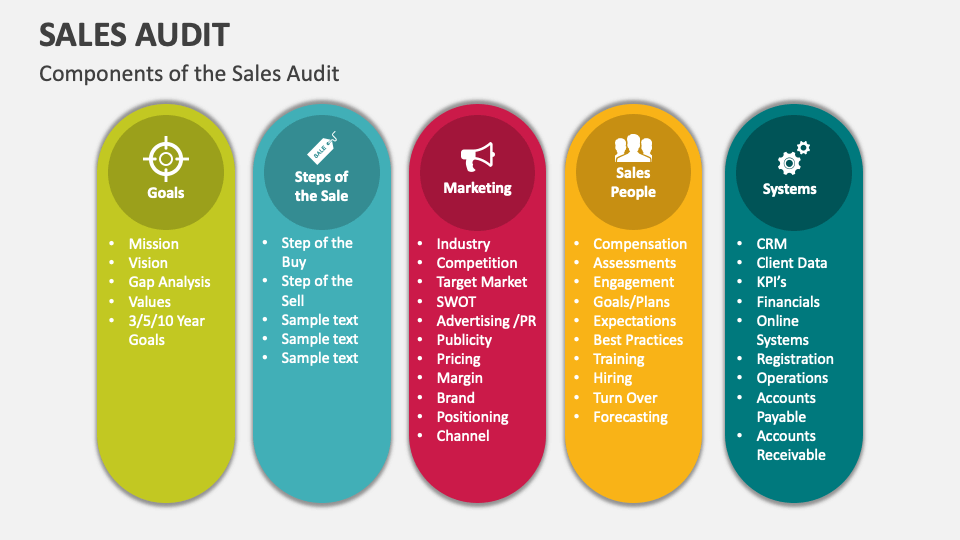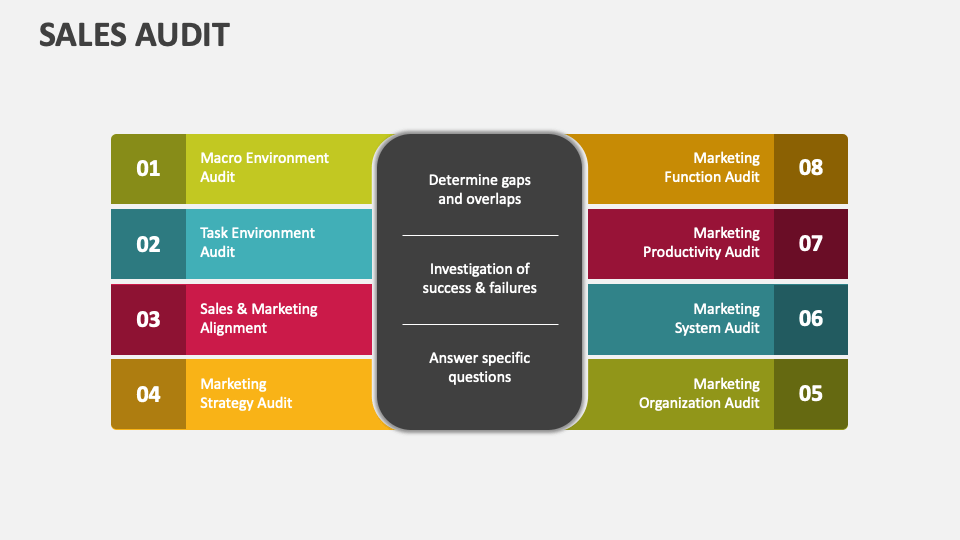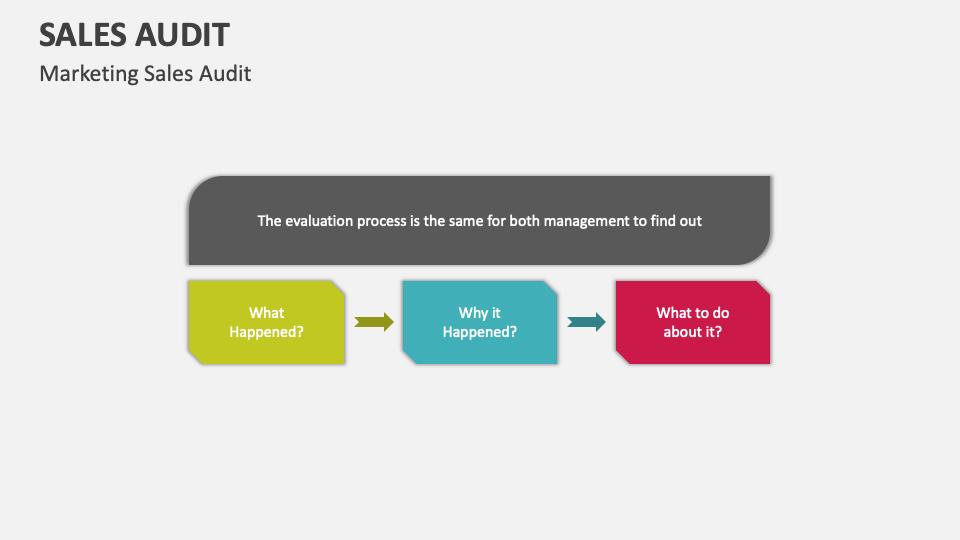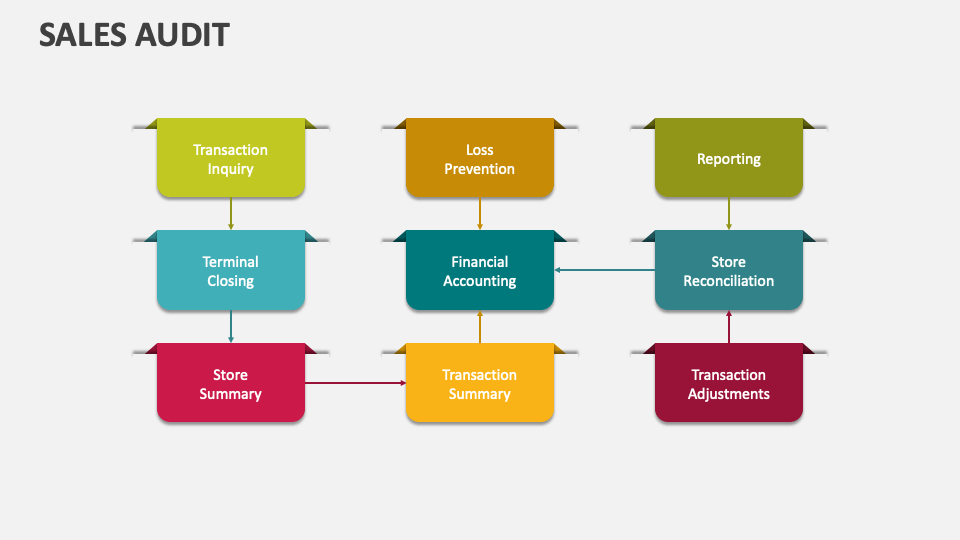Sales Audit: The Ultimate Guide To Boosting Your Business Revenue
Ever wondered why your sales numbers aren't growing despite your best efforts? Let me tell you, a sales audit could be the game-changer you've been looking for. In today's competitive market, knowing where you stand and how to improve is crucial. A sales audit helps businesses uncover hidden opportunities and address weaknesses they didn't even know existed. This isn't just some fancy term; it's a powerful tool that could make or break your revenue stream.
Now, you might be thinking, "Do I really need this?" Trust me, if you're serious about scaling your business, a sales audit is more than necessary. It's like giving your sales process a full-body checkup. From identifying inefficiencies to pinpointing areas of growth, a sales audit provides actionable insights that can transform your business. And hey, who doesn't want to make more money, right?
Here's the deal: Businesses often overlook the importance of auditing their sales processes. They get so caught up in day-to-day operations that they forget to take a step back and evaluate the bigger picture. But here's the kicker – a well-executed sales audit can lead to significant improvements in your bottom line. So, let's dive deep into what it entails, why it matters, and how you can implement it effectively.
Read also:Why Did Sulli Die Understanding The Tragic Loss Of A Beloved Star
What Exactly is a Sales Audit?
A sales audit is basically an in-depth evaluation of your company's sales processes, strategies, and performance. Think of it as a detective's investigation into how well your sales team is performing and where improvements can be made. It covers everything from sales techniques to customer relationships, ensuring that every aspect of your sales process is optimized for success.
When you conduct a sales audit, you're not just looking at numbers; you're analyzing the entire sales ecosystem. This includes assessing your sales team's effectiveness, evaluating customer feedback, and identifying trends that could impact your business. It's like giving your sales department a full health check, making sure everything is running smoothly and efficiently.
Why Should You Care About Sales Audits?
Here's the thing – if you're serious about growing your business, you can't afford to ignore sales audits. They offer valuable insights into your sales processes, helping you identify areas that need improvement. For instance, you might discover that your team is spending too much time on unqualified leads or that your sales strategy isn't aligned with your target market.
By addressing these issues, you can enhance your sales performance, increase customer satisfaction, and ultimately boost your revenue. Plus, a regular sales audit can help you stay ahead of the competition by keeping your sales strategies fresh and relevant. In short, it's a win-win situation for your business.
The Key Components of a Sales Audit
Now that you know why sales audits are important, let's break down the key components that make up a successful audit:
- Sales Process Evaluation: Assess how well your sales process is working and identify bottlenecks or inefficiencies.
- Team Performance Analysis: Evaluate the effectiveness of your sales team and pinpoint areas for training or development.
- Customer Feedback Collection: Gather insights from your customers to understand their needs and expectations better.
- Market Trend Analysis: Stay updated on industry trends and adjust your strategies accordingly.
Each of these components plays a crucial role in ensuring that your sales audit is comprehensive and actionable. By covering all these bases, you can ensure that no stone is left unturned in your quest for sales excellence.
Read also:Unveiling The Legacy Of Amos Mefford Hanks A Deep Dive Into His Remarkable Journey
How to Conduct an Effective Sales Audit
Conducting a sales audit might sound intimidating, but with the right approach, it can be a straightforward and rewarding process. Here's how you can do it:
Step 1: Define Your Objectives
Before diving into the audit, it's essential to clearly define what you want to achieve. Are you looking to improve your sales process, increase customer satisfaction, or both? Setting clear objectives will guide the entire audit process and help you focus on the most critical areas.
Step 2: Gather Data
Data is king when it comes to sales audits. Collect as much relevant data as possible, including sales reports, customer feedback, and market research. This will give you a solid foundation to analyze and draw meaningful conclusions from.
Step 3: Analyze the Results
Once you have all the data, it's time to dig deep and analyze it. Look for patterns, trends, and anomalies that could indicate areas of improvement. This step requires a keen eye for detail and the ability to connect the dots between different data points.
Step 4: Implement Changes
Finally, take the insights gained from your audit and implement the necessary changes. This could involve updating your sales process, providing additional training to your team, or revising your marketing strategies. The key is to act on the findings and continuously improve your sales operations.
Benefits of Regular Sales Audits
Regular sales audits offer numerous benefits that can significantly impact your business's success. Here are just a few:
- Improved Sales Performance: By identifying and addressing inefficiencies, you can enhance your sales team's effectiveness.
- Increased Customer Satisfaction: Understanding your customers' needs better allows you to tailor your offerings to meet their expectations.
- Competitive Advantage: Staying informed about market trends and adapting your strategies accordingly keeps you ahead of the competition.
These benefits highlight the importance of making sales audits a regular part of your business strategy. They ensure that your sales operations remain robust and aligned with your business goals.
Common Mistakes to Avoid During a Sales Audit
While conducting a sales audit, it's crucial to avoid common pitfalls that could undermine its effectiveness. Here are a few mistakes to watch out for:
- Lack of Clear Objectives: Without defined goals, your audit might lack direction and focus.
- Inadequate Data Collection: Failing to gather sufficient data can lead to incomplete or inaccurate conclusions.
- Ignoring Customer Feedback: Overlooking what your customers have to say can result in missed opportunities for improvement.
Avoiding these mistakes will help ensure that your sales audit is thorough and yields actionable insights. It's all about doing it right the first time.
Tools and Resources for Conducting Sales Audits
There are several tools and resources available to assist you in conducting a successful sales audit. Some popular ones include:
- Crm Systems: Tools like Salesforce and HubSpot can help you track and analyze sales data effectively.
- Market Research Platforms: Platforms such as Statista and IBISWorld provide valuable insights into market trends and consumer behavior.
- Customer Feedback Tools: Tools like SurveyMonkey and Qualtrics make it easy to collect and analyze customer feedback.
Utilizing these tools can streamline your audit process and provide you with more accurate and actionable data.
Case Studies: Real-Life Examples of Successful Sales Audits
Let's take a look at some real-life examples of businesses that have benefited from conducting sales audits:
Case Study 1: Tech Startup
A tech startup noticed a decline in sales despite launching several new products. After conducting a thorough sales audit, they discovered that their sales process was too complex, deterring potential customers. By simplifying their process and providing better training to their sales team, they managed to increase sales by 25% within six months.
Case Study 2: Retail Chain
A retail chain was struggling to keep up with its competitors. Through a sales audit, they identified that their customer service was lacking. By implementing a new training program focused on enhancing customer interactions, they saw a significant improvement in customer satisfaction and repeat business.
These case studies demonstrate the tangible benefits of conducting regular sales audits and making the necessary changes based on the findings.
Conclusion: Take Action Today
In conclusion, a sales audit is an invaluable tool for any business looking to improve its sales performance and revenue. By evaluating your sales processes, analyzing customer feedback, and staying updated on market trends, you can identify areas of improvement and implement changes that drive success.
So, what are you waiting for? Start planning your sales audit today and take the first step towards boosting your business. Don't forget to share your thoughts and experiences in the comments below. And if you found this guide helpful, be sure to check out our other articles for more tips and insights on growing your business.
Table of Contents
- What Exactly is a Sales Audit?
- Why Should You Care About Sales Audits?
- The Key Components of a Sales Audit
- How to Conduct an Effective Sales Audit
- Benefits of Regular Sales Audits
- Common Mistakes to Avoid During a Sales Audit
- Tools and Resources for Conducting Sales Audits
- Case Studies: Real-Life Examples of Successful Sales Audits
- Conclusion: Take Action Today



